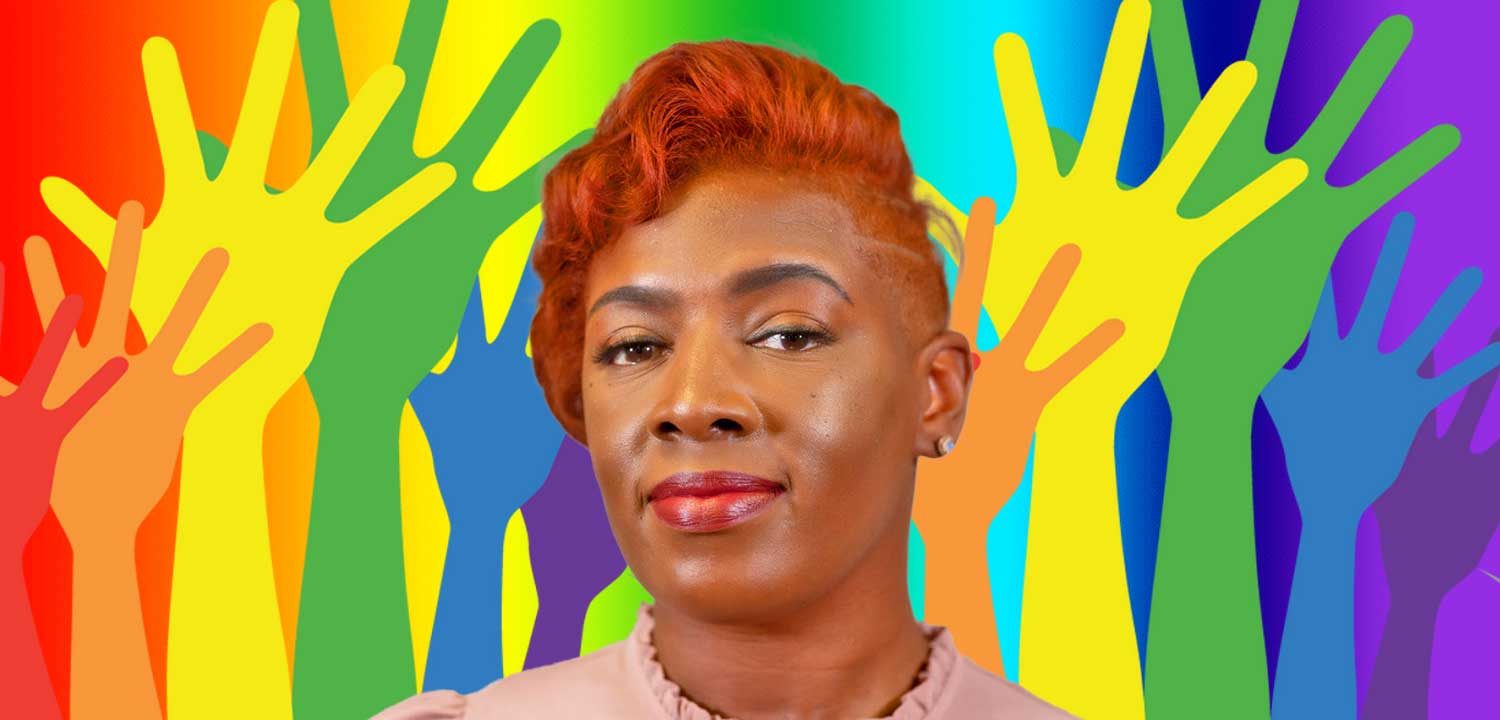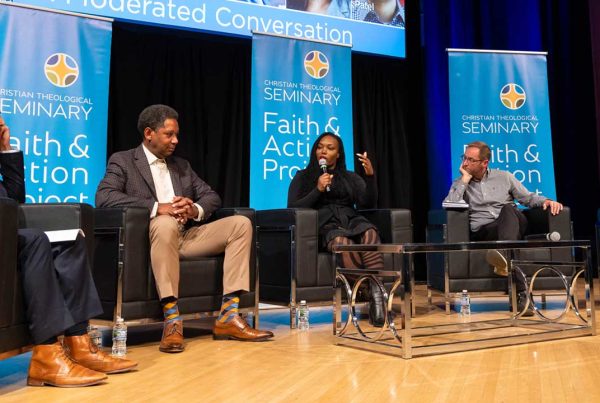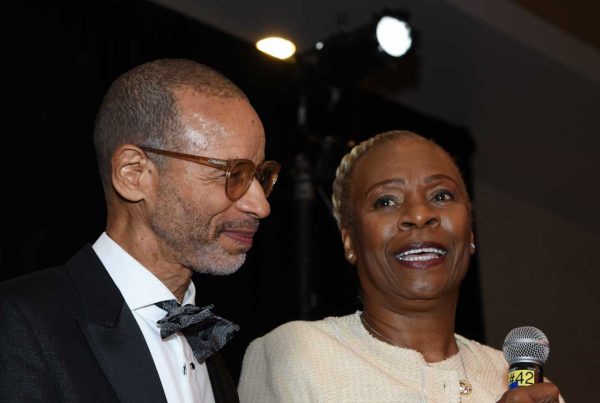From brokenness to hope
This Faith & Action Project story lifts up grant recipient Indiana Youth Group and the difference it makes in the lives of LGBTQIA+ teens.
“She came to us feeling broken.”
Describing one of her organization’s clients, Indiana Youth Group (IYG) Young Adult Services Director Kenya Anderson quickly added that, a year-and-a-half later, “She’s still struggling, but she’s hopeful.”
Anderson shared that the “client who was feeling broken” is a trans youth who had experienced emotional and physical abuse from a parent and stepparent who didn’t accept her as she is. The young woman had been cutting herself and considering suicide, Anderson said. With no idea what to do, she came to IYG.
Now? She’s participating in counseling at IYG, enrolled at Ivy Tech, and working on getting healthy. She hasn’t solved all of her problems, but with the support she’s receiving, she does have one thing that is making a huge difference: hope.
In the Faith & Action Project’s effort to accelerate and highlight the organizations that are effective in breaking the cycle of poverty and bringing hope to the lives of the most vulnerable, we sought out a conversation recently with IYG, the recipient of a 2023 Faith & Action Grant.
Targeting mental health services and case management support for the LGBTQ+ individuals aged 12 to 24 that IYG serves, the $20,000 grant has been used to add to IYG’s staff of therapists, who help clients deal with mental health issues and navigate the system of community resources and supports that can help them avoid long-term poverty.
These days, a key part of IYG’s services is stable housing. “Many LGBTQ+ youth find themselves forced out of their homes or in untenable living situations,” said IYG CEO Chris Paulsen. To respond to this crisis – and to a request from the City of Indianapolis – in 2020 IYG launched Project Prism, a rapid rehousing program for LGBTQ+ youth. The program helps clients settle into long-term housing of their choice and surrounds them with education and employment services, basic needs support, mental and general health services, and case management.
To help clients establish credit, IYG puts housing, utilities, and more into the client’s name while also providing guidance on budgeting and ensuring bills get paid. Over time, the client takes on full fiscal responsibility. Today, more than 60 individuals are being housed through the Prism Project.
Housing was not on IYG’s agenda when it was created in 1987 as a safe haven for LGBTQ+ individuals, but it has become a focus as the organization has recognized the key role housing plays in long-term stability. In this way, housing is similar to other programs IYG has created: they expand the organization’s mission in response to what’s happening in the lives of the people it serves. “A lot of our services are built on the needs we see,” Paulsen said.
This follow-the-need approach has sparked growth and evolution in IYG, which now offers a wide range of programs, including a food pantry, clothes closet, testing for HIV and STDs, yoga, nutrition counseling, and more. The organization is also expanding geographically, moving into Indiana cities where there are not similar organizations or where existing organizations need to be strengthened.
“We’re being intentional and looking for places to go. We’ve already opened two locations and we’re looking at two more this year,” Paulsen said. “IYG expects to expand to 10 locations over five years.”
One of the greatest limiters to growth will be people, Paulsen said. IYG’s work is incredibly relational and labor-intensive, so it takes a lot of people to deliver its services. While this means the organization will need resources to add paid staff – over a few years, it has grown from seven employees to 37 – it also needs volunteers, she said.
“Our programs don’t operate without volunteers,” Paulsen said.
When we asked if they look to congregations as a source of community volunteers, IYG Senior Manager of Resource Development Shelly Fitzgerald said yes, but added a hesitation. “We would invite individuals from opening and affirming congregations to work with us if they are open to learning about LGBTQ+ issues and want to uphold the dignity of the individuals we serve,” she said.
Fitzgerald also noted that many LGBTQ+ youth want to find community in a church, but, having been previously judged or pushed away, they are afraid to approach any faith community. For this reason, it’s imperative that faith communities are open and vocal in their support.
“We need a positive narrative that’s louder than the negative,” Fitzgerald said.
If your faith community would like to help LGBTQ+ youth avoid or emerge from poverty, IYG and the Faith & Action Project would like to work with you, collaborating to ensure hope, equity and a pathway to stability are available to all. Please contact Faith & Action Director Lindsey Rabinowitch to get connected.






